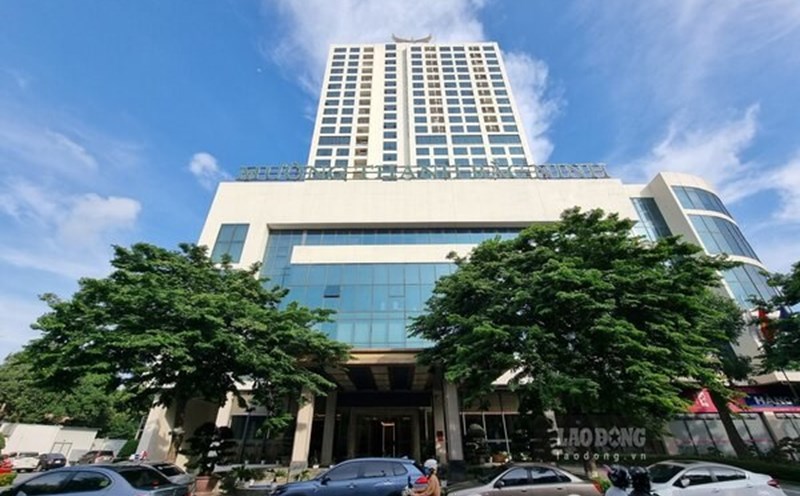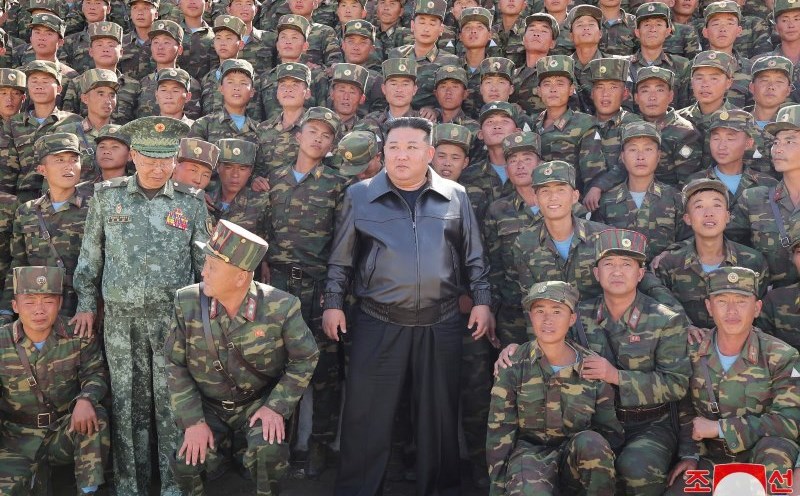On October 4, Hanoi University in collaboration with the Vietnam Association of German Language Teachers (VDLV) organized an international scientific conference with the theme "Teaching and researching German language and culture in East (South) Asia: Tradition and Innovation".
The conference was attended by 142 delegates from research institutes and educational institutions of 16 countries and territories. This is an academic forum for exchange, sharing and exchanging teaching and research experiences between German language teachers and language and culture researchers from German-speaking countries in Vietnam and internationally.
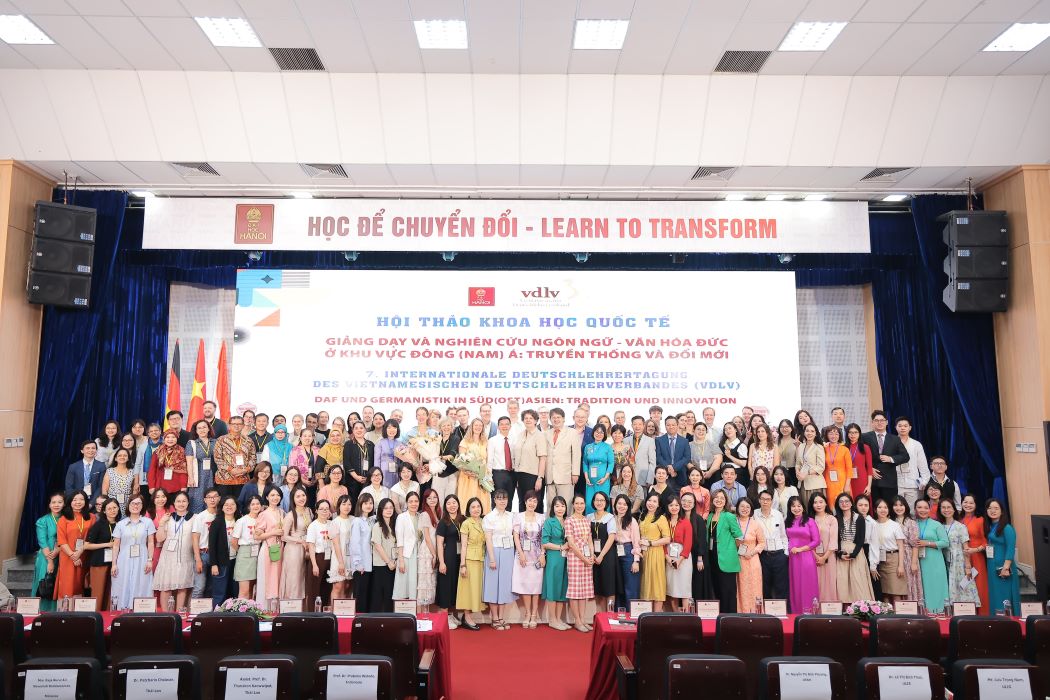
Speaking at the conference, Dr. Luong Ngoc Minh - Vice President of Hanoi University - said that German is one of the most popular languages in the world, widely used in European countries and is also the main language of Germany, Austria and Switzerland. At the same time, German is considered one of the important and highly global languages, especially in the fields of economics and trade.
Dr. Luong Ngoc Minh said that Vietnam currently has close partnerships with Germany, Austria, and Switzerland in many fields. This creates favorable conditions for German learners to find jobs at German, Austrian, and Swiss companies or companies that have business relations with these countries.
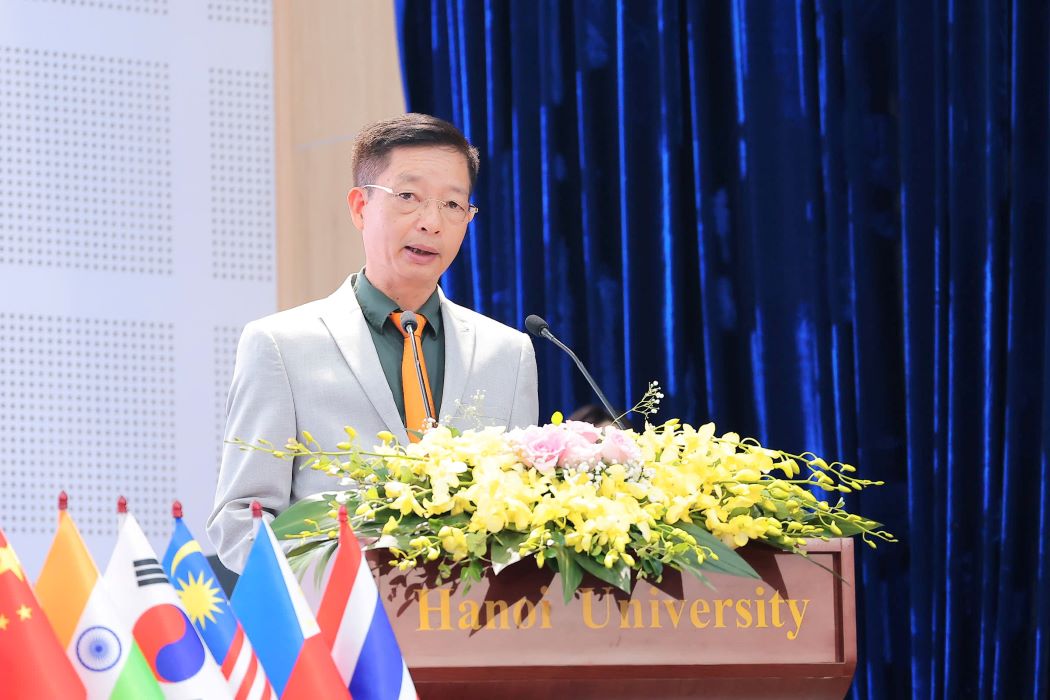
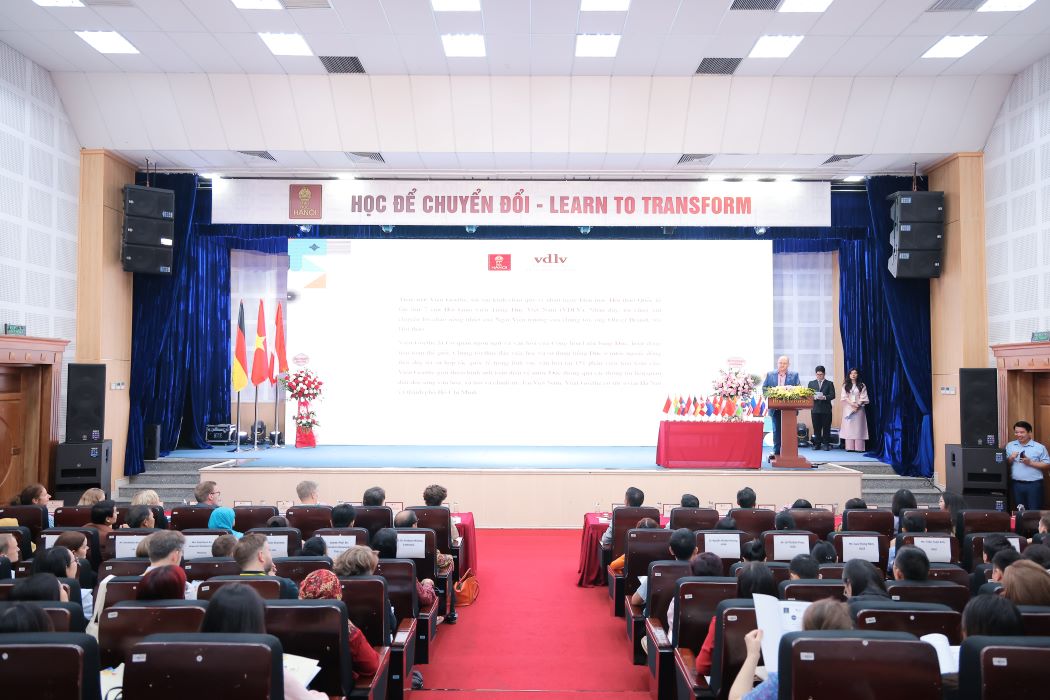
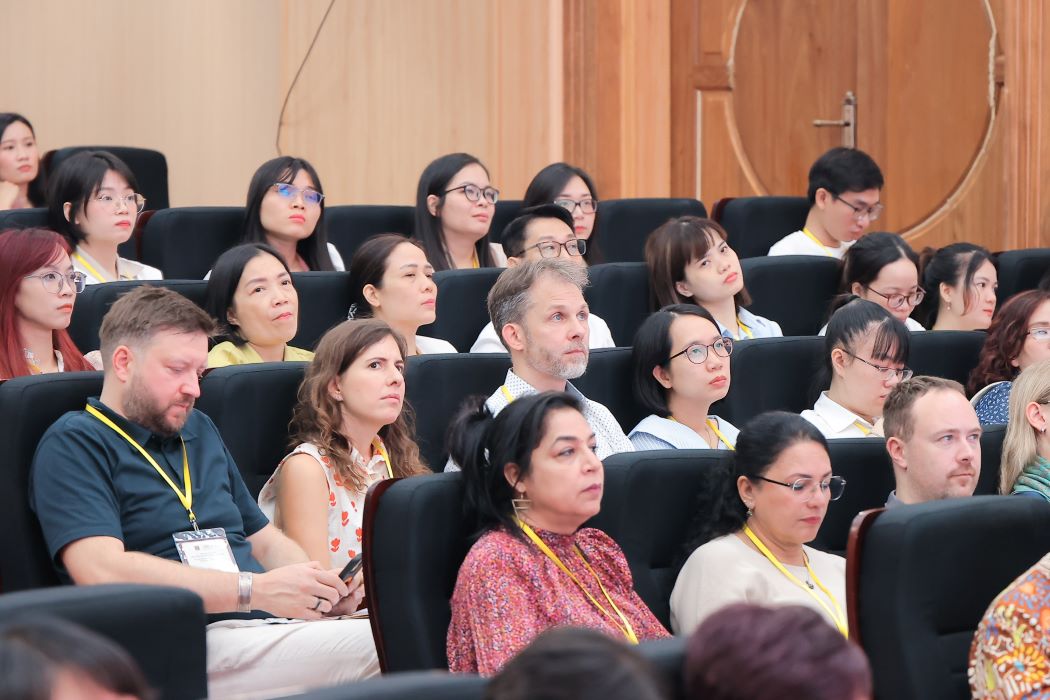
"In recent years, the demand for learning German in Vietnam and the region has increased significantly. This has created favorable opportunities for expanding the scale and improving the quality of German teaching and research," said Dr. Luong Ngoc Minh, adding that the trend of internationalizing universities also creates conditions for higher education institutions in Vietnam and around the world to cooperate and connect with each other to exchange experiences and academics.
At the same time, Dr. Luong Ngoc Minh suggested that technological and digital advances, especially the advent of ChatGPT, have created a revolution in the field of education, especially in the teaching of foreign languages such as German. Along with that, new challenges have emerged - that is, adjusting teaching methods to suit the latest technological developments, while preserving the positive aspects of traditional teaching methods.
This is also the main content that delegates and scientists discussed and exchanged at the international scientific conference "Teaching and researching German language and culture in East (South) Asia: Tradition and Innovation".
The workshop focused on issues such as: Traditional and modern foreign language teaching methods; Application of artificial intelligence in German language research and teaching; Building German language training programs; Compiling learning materials and textbooks for teaching German as a foreign language; International cooperation in German language research and teaching...

